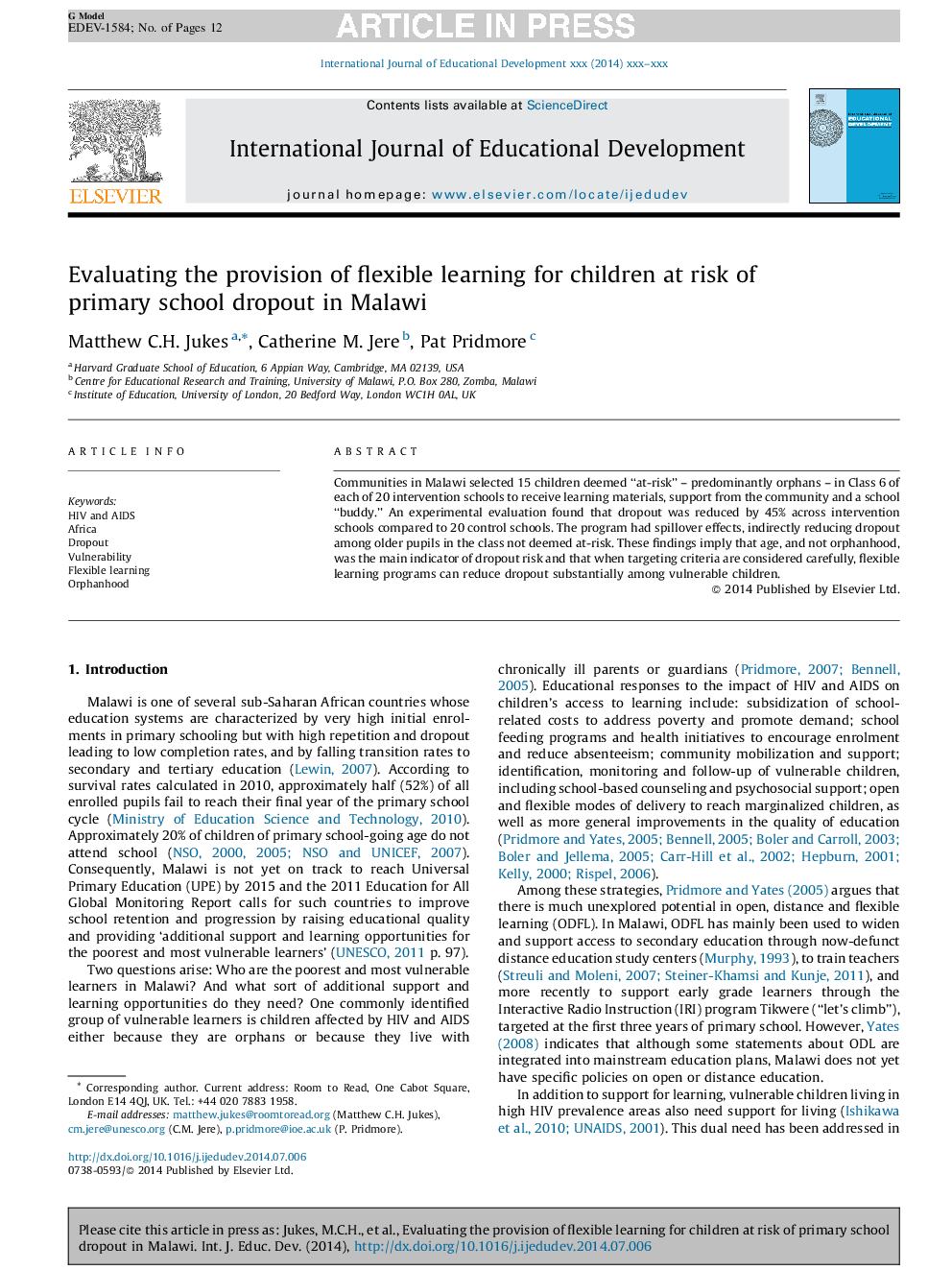| Article ID | Journal | Published Year | Pages | File Type |
|---|---|---|---|---|
| 6841409 | International Journal of Educational Development | 2014 | 12 Pages |
Abstract
Communities in Malawi selected 15 children deemed “at-risk” - predominantly orphans - in Class 6 of each of 20 intervention schools to receive learning materials, support from the community and a school “buddy.” An experimental evaluation found that dropout was reduced by 45% across intervention schools compared to 20 control schools. The program had spillover effects, indirectly reducing dropout among older pupils in the class not deemed at-risk. These findings imply that age, and not orphanhood, was the main indicator of dropout risk and that when targeting criteria are considered carefully, flexible learning programs can reduce dropout substantially among vulnerable children.
Related Topics
Social Sciences and Humanities
Social Sciences
Development
Authors
Matthew C.H. Jukes, Catherine M. Jere, Pat Pridmore,
